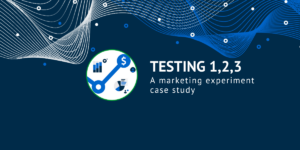As enterprise marketers prepare for Black Friday/Cyber Monday (BFCM) 2025, a comprehensive privacy strategy is non-negotiable amid evolving regulations, with enforcement intensifying across borders—potentially leading to fines up to 4-5% of global revenue. This includes core frameworks like GDPR and CCPA, plus a growing U.S. state patchwork and Canadian/Mexican nuances. Prioritize granular consent, opt-out tools, and cross-jurisdictional mapping in your pre-campaign audit.
Here’s an executive summary list of key considerations:
GDPR (EU-Focused Global Standard)
Ensure lawful basis for processing (e.g., consent or legitimate interest) in marketing data, with explicit opt-ins for automated decisions like personalized ads; conduct DPIAs for high-risk BFCM activities and honor data subject rights (e.g., erasure) to avoid extraterritorial fines impacting U.S./Canadian ops.
CCPA/CPRA (California-Specific with Broad Reach)
Provide clear “Do Not Sell or Share My Personal Information” notices and opt-out mechanisms for targeted advertising; limit sensitive data use (e.g., inferences on shopping habits) and enable access/deletion requests—critical for California-heavy BFCM traffic, with penalties up to $7,500 per intentional violation.
U.S. State Privacy Patchwork (Beyond California)
Map compliance across 18+ active state laws by July 2025, including Virginia’s CDPA (effective 2023, opt-out for targeted ads), Colorado’s CPA (sensitive data consent), and new 2025 entrants like Delaware, Maryland, Minnesota, and New Jersey—requiring universal “Do Not Sell/Share” signals via tools like Global Privacy Control (GPC) to unify targeting across borders.
Children’s Data Protections (COPPA and Emerging Rules)
Strictly limit data collection for under-13s under federal COPPA; monitor state expansions (e.g., Connecticut’s CTDPA kids’ provisions) and proposed federal KOSA—essential for family-oriented BFCM campaigns, mandating verifiable parental consent and no personalized ads for minors.
Email and SMS Consent (CAN-SPAM and TCPA)
Ensure affirmative opt-in for commercial emails/SMS under federal CAN-SPAM and TCPA—critical for high-volume holiday blasts—with easy unsubscribe links and no pre-checked boxes; non-compliance risks $43K+ per violation amid rising TCPA litigation.
Canadian Federal and Provincial Regimes (PIPEDA and Beyond)
Obtain meaningful consent under PIPEDA for marketing uses, with explicit opt-out for commercial electronic messages via CASL—layer in provincial nuances like Quebec’s Law 25 (full enforcement 2025, requiring privacy impact assessments) and BC/Alberta PIPAs for data minimization in cross-border flows.
Mexico’s Updated LFPDPPP
For U.S./Canadian brands with Latin American reach, secure express consent for marketing comms and sensitive data under the 2025-revised Federal Law (effective March)—including ARCO rights (access/rectification/cancellation/opposition) and privacy notices in Spanish, with fines up to 4% of annual revenue for breaches.
Cross-Border Data Transfers
Address adequacy gaps (e.g., no EU-style decisions for U.S./Canada flows) using standard contractual clauses or BCRs—vital for BFCM’s global supply chains; audit for Schrems II compliance to prevent transfer bans disrupting ad tech stacks.
Sector-Specific Overlaps (e.g., Health/Finance)
Integrate HIPAA/GLBA where applicable for wellness/fintech holiday promos—e.g., no sharing health inferences without BAA—while preparing for FTC’s expanded oversight on AI-driven personalization under Section 5 unfair practices.
Enforcement and Audit Readiness
Anticipate heightened scrutiny with 2025 budgets boosting regulators (e.g., FTC’s $400M+ fines in 2024); conduct DPIAs for high-risk processing like real-time bidding, and train teams on “privacy by design” to embed checks in campaign tech stacks.
Technological Enablers for Compliance
Deploy CMPs (consent management platforms) supporting GPC/U.S. state signals and Canadian Layered Approaches—enabling cookieless tracking via first-party data while tracking ROI; test for 2025’s AI regs on automated decisions in segmentation.
Consumer Trust and Litigation Risks
Beyond legal minima, prioritize transparency (e.g., clear notices on data use for retargeting) to mitigate class actions—86% of consumers wary of marketing data practices—turning compliance into a BFCM loyalty differentiator via “privacy-first” messaging.




